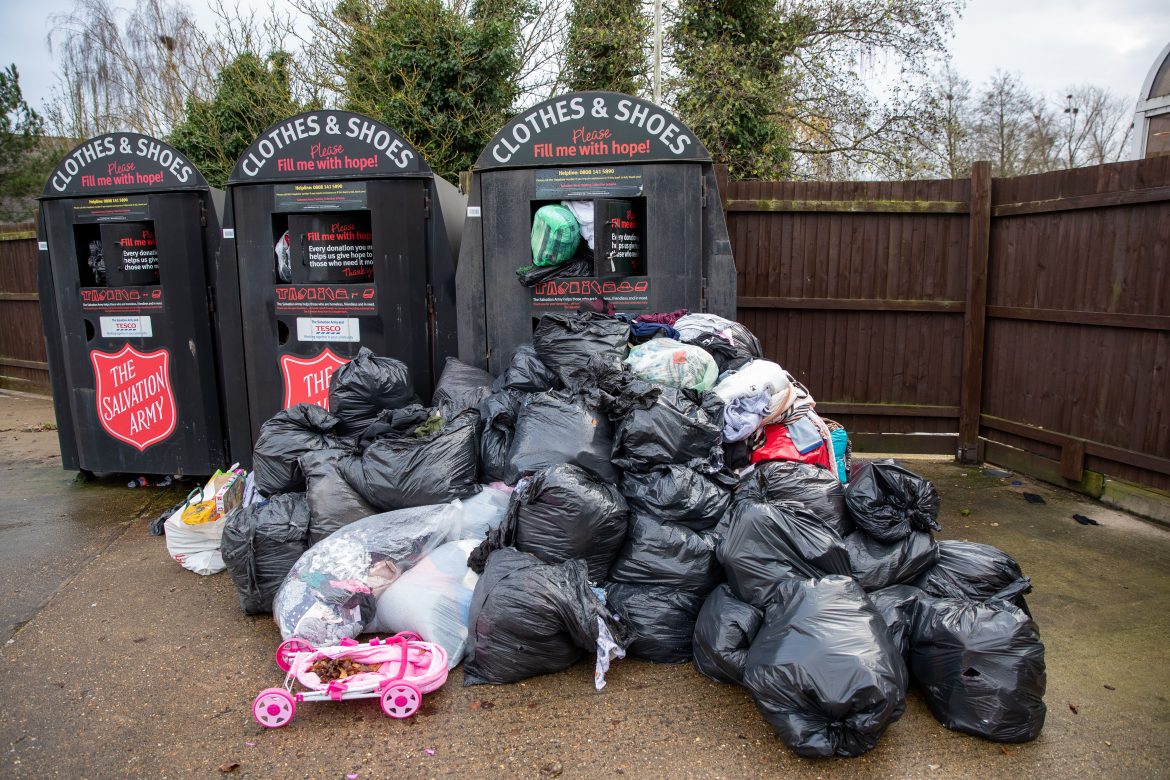Fast fashion is having an immense impact on our planet.
The main contributor to this negative impact is the use of cheap, toxic textile dyes – which has made the fashion industry one of the largest polluters of clean water globally.
Polyester is one of the most popular fabrics used, which is derived from fossil fuels.
This fabric contributes to global warming and can shed microfibres that add to the increasing levels of plastic in the oceans when clothing is washed or even worn.
Fast fashion has been a growing problem for decades, which began when the latest styles had to get on the market as fast as possible, to ensure the item was still in trend.
However, as new trends immerge, older items of clothing are then discarded.
Fast fashion often has an extremely short turnaround time, is manufactured offshore where labour is the cheapest and only a limited quantity of a particular garment is produced, encouraging customers to buy it before the item sells out.
But instead, as British designer, Vivienne Westwood, said: “Buy less, choose well, make it last.”
To reduce the growing problem of fast fashion, people can swap clothing with their friends, rent clothing for special occasions and shop second-hand.
In Kingston, there are many charity shops that make this idea possible.
These include: Cancer Research UK, Princess Alice Hospice, Oxfam, British Heart Foundation, Vision Foundation and Mind Shop.

It is also possible to make changes through the use of online fashion retailers.
Online retailer, ASOS, have a dress rental section on their app, which allows consumers to hire clothing for up to 14 days.
This allows people to rent clothing for events and then return it after they have worn it for a fraction of the price of buying it.
Lucy, a Customer Service Executive for ASOS, said: “Our ASOS rental has been exceptionally popular and successful.”
Fast fashion has been an ongoing problem for decades and has become a talking point in society.
Oh Polly, which predominately sells dresses and has the brand Bo&Tee, also has a system where if people donate to them, they can receive discount off their next order.
In 2021, they became the first retailer to launch an Online Clothing bank, allowing their customers to donate via their Online Clothing Bank, in partnership with The Salvation Army.
When clothing is donated, The Salvation Army reviews the clothing and it will either be resold, recycled or remanufactured.
Currently, Oh Polly has raised £3,488.86 and diverted 1872 kg of clothing from landfill through resale.
Pretty Little Thing (PLT) also launched a marketplace in 2022, which allows their customers to re-sell their old clothes.
The PLT Marketplace was created to extend the life of garments, allow people to earn money through the items they no longer wear and to help to reduce waste.
Georgia Maiy, who has 275,200 followers on TikTok and calls herself ‘the fashion sister’, said that she never buys into microtrends, meaning that she would not buy something that would be out of trend in a few months.
Maiy said: “Fast fashion these days is shoved down our throats: Its online, when you walk down the street, it’s everywhere – we cannot get away from it.”
She said that when you buy a new piece of clothing, you should ensure that it is something that you are likely to wear in different ways over the years.
She said that in doing this, as a society, we could change the way clothes are made and sold.





